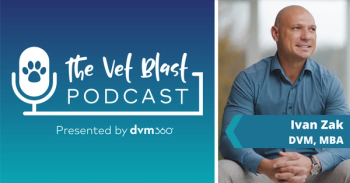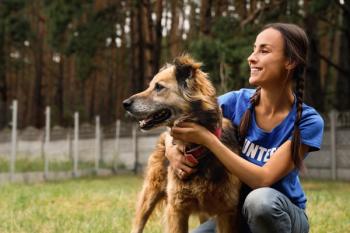
How Galaxy Vets worked to alleviate the animal welfare crisis in Ukraine

How Galaxy Vets worked to alleviate the animal welfare crisis in Ukraine

Important steps toward getting the most out of a veterinary technician career

Study to investigate how work environment, euthanasia, and compensation impact burnout

Ivan Zak returns to talk about how the veterinary industry can make change to improve the lives of veterinarians and technicians

A public relations expert shares communication tips to avoid a media disaster in times of crisis

Applying VCPR legal language to real-life medical scenarios

Initiative helps owners provide necessary pet care while offering them emotional support during dire time

Learn how one healthcare system is tackling veterinary burnout with data

Galaxy Vets Foundation will raise funds, and collect and deliver supplies to organizations in need, as well as provide pet owners free access to professional veterinary care through its telehealth platform

Working as few as 24 hours per week will qualify as full-time employment and eligibility to receive a full benefits package and equity in the organization

The universal barriers to receiving veterinary care, plus why this modern solution can benefit both veterinary professionals and their clients

The employee-owned veterinary healthcare system appoints new leaders in medical operations, telehealth, and more.

Learn how the SOAP method can be applied to help resolve business-related problems at the clinic.

CEO of Galaxy Vets, Ivan Zak, DVM, MBA, shares details of this new healthcare system, its mission to prevent burnout, and more insights on the company’s goals.

Top-down actions can provide a tailored work environment, improve employee retention, and strengthen morale and the bottom line.

This new healthcare system, co-owned by employees prioritizes burnout prevention with an overarching mission to "bring veterinary medicine back to veterinarians."

Meeting veterinarians’ needs can help practices develop happy, motivated associates.

Results from a recent study found that veterinary team members under age 30 had the highest burnout rates and were less enthusiastic about their jobs.